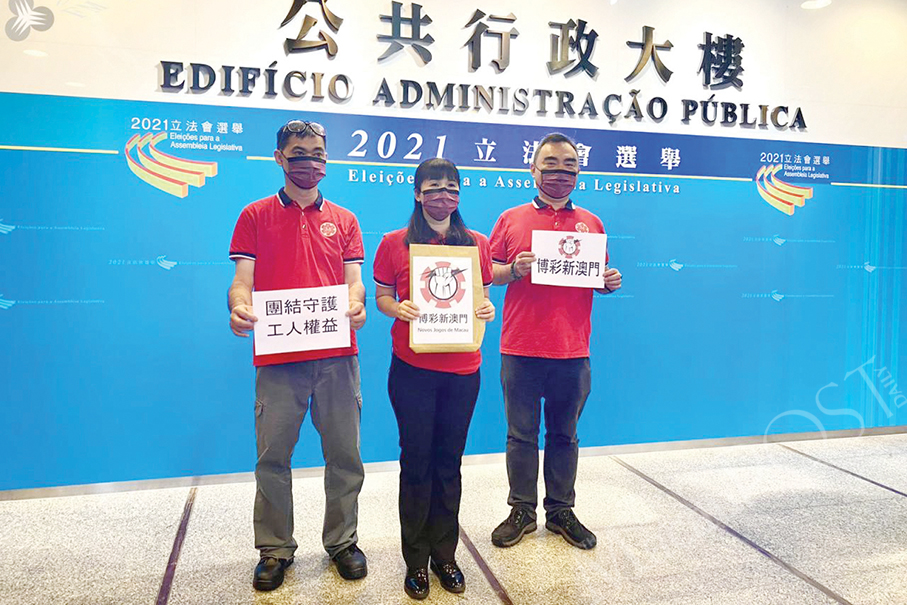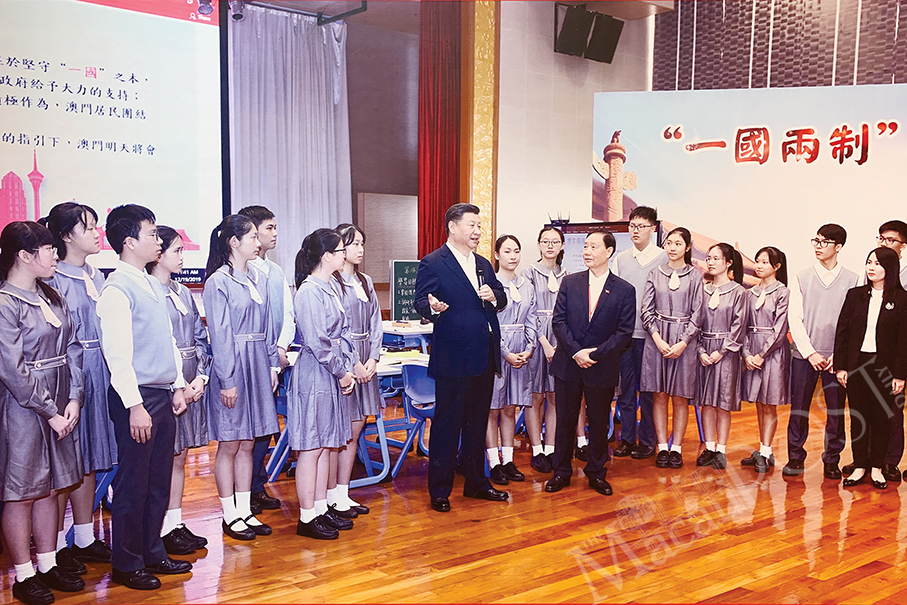The local government will allow exceptional adjustments to the official requirements for the minimum annual receipts of each gaming table and slot machine in the city’s casinos, lawmaker-cum-restaurateur Andrew Chan Chak Mo revealed yesterday.
Chan addressed a press briefing after yesterday’s closed-door meeting of the 2nd Standing Committee of the local legislature with no government officials in attendance about the ongoing revision of a government-drafted amendment bill on reshaping the local gaming industry. Chan chairs the committee.
Chan said that the officially stipulated minimum annual receipts of each gaming table and slot machine in the casinos would be adjusted according to their previous minimum annual receipts, as well as the overall local economic situation, which Chan said was to allow more flexibility in the adjustment process if, for example, a pandemic breaks out again and has a negative socio-economic impact.
According to the previous version of the bill, the secretary for economy and finance might take the initiative to reduce the number of approved gaming tables and slot machines if they fail to reach the officially stipulated minimum annual receipts for two consecutive years.
While the previous version of the bill proposed that the total number of gaming tables and slot machines must be set by the chief executive, the new version of the bill proposes that the specific maximum number of gaming tables and slot machines per casino would depend on the government’s policy on the development of the gaming industry, the operating conditions of the casinos, as well as the utilisation rate of the respective gaming tables and slot machines.
According to the latest available figures from the Gaming Inspection and Coordination Bureau (DICJ), Macau had 6,198 gaming tables and 11,758 slot machines at the end of last year.
The bill proposes that the owner of a casino must ensure its entrances and exits, water supply, electrical and mechanical and sanitary facilities are in effective operation so that the new owner can use them, if in the future the original gaming concessionaire is unable to obtain a new concession and the casino is then operated by someone else. A fine of between two and five million patacas will be imposed on any breach of the law, according to the bill.
The previous version of the bill proposed that shareholders holding more than five percent of a gaming company’s shares would not be allowed to own capital in other gaming companies, but the new version of the bill proposes to allow shareholders to own “no more than five percent” of the capital of other gaming companies.
Chan said its members would meet today to review the remaining revision, after which the government was expected to complete its new revision of the bill so that a plenary session of the legislature could vote on the bill’s final version before or on June 26, when Macau’s three gaming concessions and three sub-concessions will expire.
The government announced on Friday that it would give the green light to concessionaires’ so-called “satellite casinos” run by third parties in real-estate not owned by the operators. The previous version would have required the “satellite casinos” to be located only on premises owned by the concessionaires.
According to local media reports, the number of “satellite casinos” owned by gaming operators but run by third parties – junkets in particular – ranges between 18 and 22.
Lawmaker-cum-restaurateur Andrew Chan Chak Mo (right), who chairs the legislature’s 2nd Standing Committee, talks to reporters yesterday after the committee’s closed-door meeting reviewing the government’s ongoing revision of the gaming bill, as the committee’s secretary, Lam Lon Wai, looks on.
Photos: Ginnie Liang








